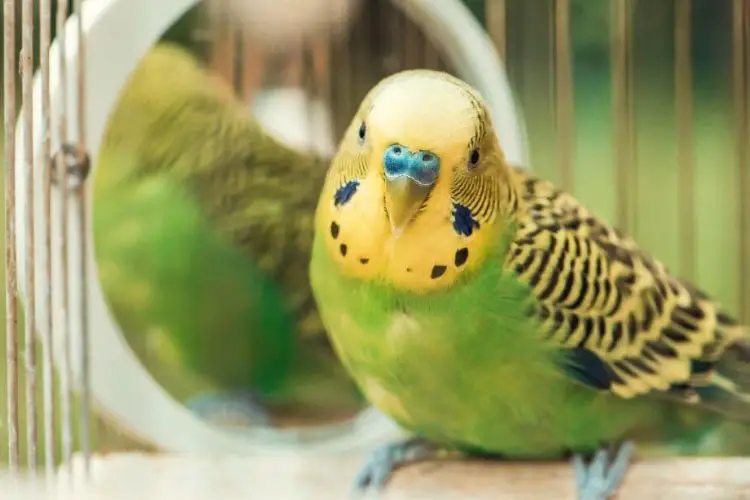Among various bird pets reared, budgies are harder to tell if they’re underweight or overweight. Most budgie owners will mistake a fat budgie for a puffed-up one or one with a swollen stomach. It’s crucial to keep these pets’ weight in check, to avoid various health problems they risk after gaining weight.
So, how do you know if your budgie is overweight? An overweight budgie will have fat around its keel bone and beneath the skin. The bird will also struggle to fly and pant after walking for a few steps. Checking the bird’s diet is the quickest way to help it lose weight.
A fat budgie is at a great health risk and needs help to lose weight. Read more to learn ways you can help your pet lose weight.
Is My Pet Budgie Overweight?
Budgies puff up to conserve heat during colder seasons, an act that confuses new budgie pet owners. One way to differentiate between a fat and a puffed-up budgie is to do a physical examination of the breast area. For an overweight budgie, its keel and breast areas are surrounded by fat, and its weight is over 60 grams.
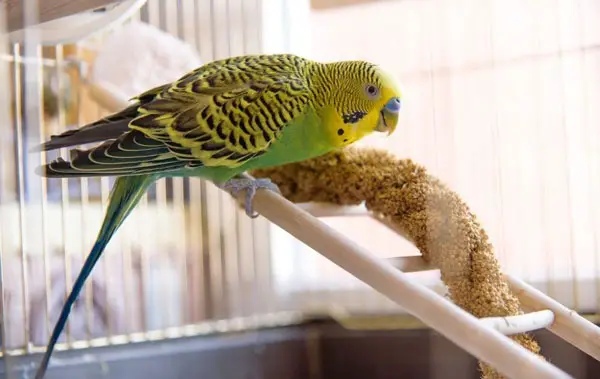
Also, checking the bird’s neck areas where its veins are, you can spot yellowish fats beneath the skin. If your budgie can fly, but lately it’s struggling, it might be a sign it’s gaining weight. A budgie panting after playing for a few minutes can also signify your pet is getting overweight.
Why Is My Budgie Getting Overweight?
There are several reasons why budgies get overweight, especially in captivity. Unlike in the wild where the birds search for everything, birds in cages do less exercise. Below are various reasons why budgies get overweight.
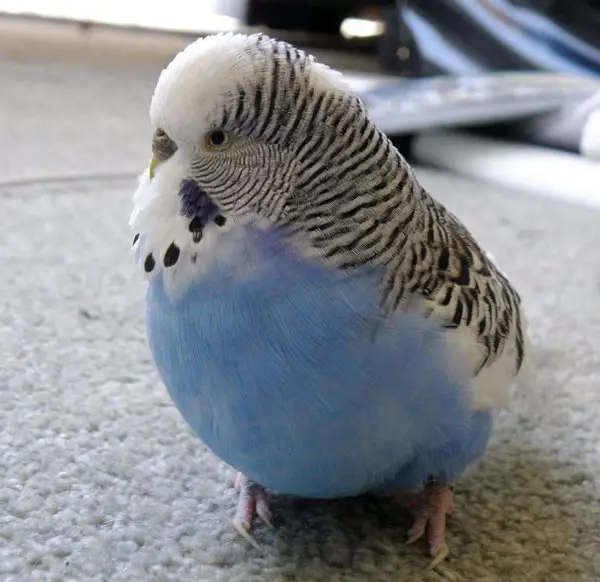
- Lack of exercise – Mostly, birds in captivity have their wings clipped to prevent unnecessary flying which can lead to atrophy in their flight muscles. Also, the reduced space in the bird’s cage limits their exercise capabilities, which promotes weight gain.
- Visits to the vet – Inconsistent visits to the avian vet for health and weight tracking can promoteabesity like feather loss and egg bindings. Also, weight tracking helps determine which diets should be avoided with respect to your bird’s weight.
- Poor diet – In an article by BioOne Complete, budgies receiving a diet of 100% seeds significantly increase weight. Poor nutrition and seeds high in fat like sunflower seeds, pecans, and peanuts encourage weight growth.
- Frequent feeding – Frequently feeding your pet and serving them much food at each serving can contribute to obesity. If your pet is overfeeding, it should have a designated feeding time and amount.
Also read: How Often Do Budgies Lay Eggs?
How Do I Help My Budgie Lose Weight?
An overweight or obese budgie is at risk of various medical issues like fatty liver, diabetes, and heart diseases. As the budgie parent, it’s up to you to help this social bird lose its weight. Below are several things you can do to help your budgie lose weight.
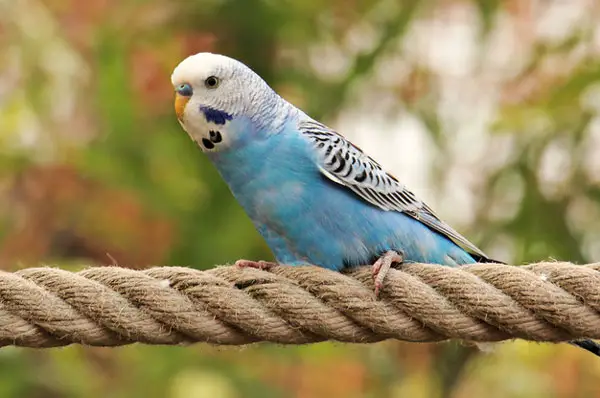
- Regularly engage your pet in exercise activities like playing fetch games for treats to help it lose weight.
- Substitute the bird’s seed diet with pellets because they have less fat and contain essential vitamins and minerals.
- Avoid giving the bird human foods which are high in fats even if the birds like them.
- Place the food bowl and water dish in different locations where your bird will walk and exercise before feeding.
- Add new toys to the bird cage to increase your bird pet’s playing mood.
- Regularly do weight checks with a veterinary professional to keep track of your bird’s weight loss progress.
- If the bird can freely fry in the house, encourage it to do that more often.
- Take the bird to a nearby aviary for more flying space and exercise.
If your budgie is overweight, they may also have difficulties in breathing. Its beak may also keep on growing longer, which is a sign of fatty liver condition. As the owner, you need to know when to engage the budgie for exercise and when to seek assistance from a veterinary doctor.
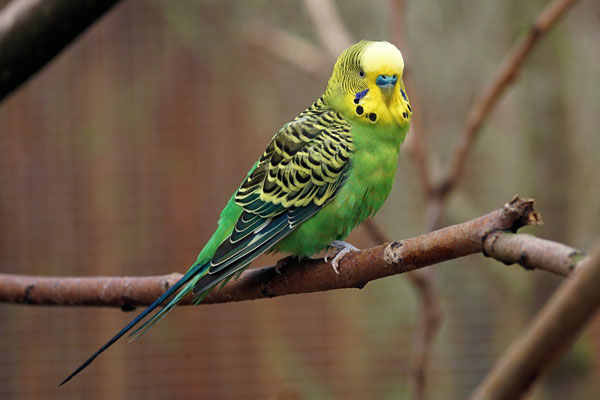
Also, sometimes your bird will present in a puffy way, which can be confusing. Do not rush to diagnose them with obesity before examining them further. Sometimes they behave this way to show that:
- They want to take a bath
- They are sick or angry
- They are drowsy and preparing to take a nap
- They are tired and want to stretch their feathers
- They are flaunting their beautiful feathers
- They are feeling satisfactory and comfortable
FAQ
Pet budgies gaining weight is a concerning issue that can raise many questions for bird owners. These questions range from possible health issues to remedies to these problems. Below are frequent questions on this topic and their carefully researched answers.
An adult budgie’s healthy weight should range between 25 to 36 grams. However, this weight is for American budgies which are physically smaller than the English budgies. An English adult budgie’s weight ranges between 45 to 63 grams growing to lengths of 10 to 12 inches.
Budgies can eat a lot if provided which encourages weight gain. A budgie should eat up to two tablespoons of seed and pellets in a day. Providing healthy foods like fruits and vegetables can help boost your pet’s diet and provide essential minerals. Also, provide these pets with plenty of fresh water and a budgie can drink about 5 percent of its body weight.
Your budgie may be fat, or simply fluffing up its feathers to get some warmth. Sometimes they also behave in such a way when relaxing or sleeping. You should never get worried about how fluffed they may appear, provided they are healthy and active.
Related: Do Budgies Bite?
Conclusion
Like humans, if budgies are served plenty of foods high in fats, they will get overweight. Diet is the main contributor to budgie pets’ growth in weight. Overweight pet birds are at risk of various health problems, including fatty liver disease, which is hard to cure.
Changing the bird’s diet and regularly engaging it in exercise activities can help it reduce weight. Adding new toys to the bird’s cage and rotating feeding locations can also help increase its exercise activities. For better progress, take your bird to an avian vet for dietary recommendations and weight checks.
